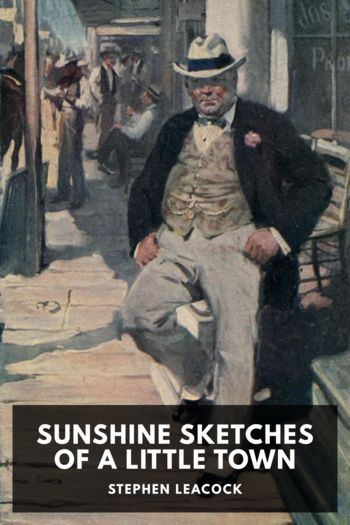Low Country, J. Jones [top 10 best books of all time .TXT] 📗

- Author: J. Jones
Book online «Low Country, J. Jones [top 10 best books of all time .TXT] 📗». Author J. Jones
We find ourselves next cruising through the flatlands of tobacco and cotton fields, with the swamps and their ghosts in the rearview mirror. Cue the Judds and Dwight Yoakam, Reba and Willie, Loretta and Conway. We all sang happily in and out of sync, never on or even near any key, until we passed the Columns, the white plantation outside Florence surrounded by trailers and locals sitting in beach chairs on their lawns with shotguns in their laps and Confederate flags disfiguring further such scenes. This was where the drippy moss disappeared from the tree limbs, and the air began to feel less fraught. The branches robed in webworms groped at the edges of the car here. One time Mom and I were driving at this point in the road under a sky that shone blue and rays of sun over one lane and poured rain across the other. “The devil must be beating his wife,” she said. Making it through this stretch, we came to the NASCAR racetrack in Darlington and could keep on with the deep and palliative croons of whoever was on the radio forever and ever amen until we pulled into Grandpa’s driveway in Charlotte. Before Mom could pull the key from the ignition, the boys and I bounded barefoot down the hill of rough, sun-hot driveway and into his arms. Who could pause to tie shoes with excited, clumsy fingers when he was waiting for us? Here I am feeling greedy for the next memory that I retrieve, rewind, and replay by choice for a change. One wherein I am enfolded in blissful safety and lifted spinning from the burning summer pavement as kid laugher floats over a chorus of cicadas and ice cubes clink the edges of a glass of bourbon. I was always the first to be picked up and held aloft. He smelled of the bourbon he drank out of a wax Dixie cup, vetiver-laced cologne, shoe leather, and oak trees, which were taller and whose limbs seemed to climb upward instead of in the crooked sprawl of home. Lightning bugs danced between dusky peach rays of twilight, and I kissed his cheek. I could taste the salt of sweat and feel his calm, openhearted authority.
Atop the red-brick patio, Grandpa stood in sagging khakis and canvas boat shoes and nothing else but his glasses. He clapped his hands together while we double-hopped the steps to reach him. “Hey, kiddos!” He pulled the phrase out as long as his arms, which were deeply tanned and damp with sweat. On these weekends, he never wore a shirt, and his stomach ballooned over the waistband of his pants. Again we pause on the vanity of men, which grows in step with success.
His one-story brick house was an odd arrangement of hallways and living rooms that led to bedrooms and centered around a kitchen. Despite its unusual shape, it was always lively on these visits. It was also a bona fide bachelor pad, complete with a wet bar, pool table, and hot tub. He was the only adult who regarded our input as valuable as a grown-up’s, while still indulging us in childhood. On summer mornings, he invited me to pick scuppernongs with him from the mass of grapevines that enshrouded a corner of his back porch. “What’s your favorite subject, kid?” His question was followed by a scuppernong seed that he spit into the yard. “English,” I said always, and my own scuppernong seed would fall just past my feet. He’d laugh and brush it off the side of the porch without a word. And as everybody else in the house slept in, we asked each other questions—Where did I want to go to college? What was his favorite country he’d ever been to?—and eat the vine clean.
These weekends were carefree ones of games of pool and darts in Grandpa’s living room. We pretended to pour scotch on





Comments (0)